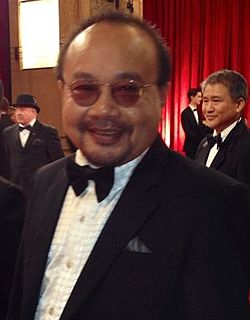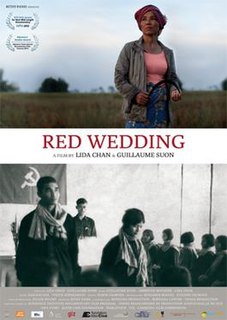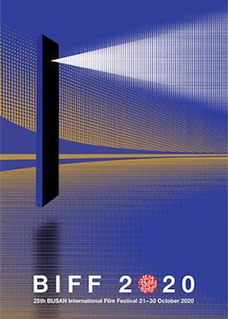
The Busan International Film Festival, held annually in Haeundae-gu, Busan, South Korea, is one of the most significant film festivals in Asia. The first festival, held from 13 to 21 September 1996, was also the first international film festival in Korea. The main focus of the BIFF is to introduce new films and first-time directors, especially those from Asian countries. Another notable feature is the appeal of the festival to young people, both in terms of the large youthful audience it attracts and through its efforts to develop and promote young talent. In 1999, the Pusan Promotion Plan was established to connect new directors to funding sources. The 16th BIFF in 2011 saw the festival move to a new permanent home, the Busan Cinema Center in Centum City. The Busan Cinema Center is an about US$150 million structure designed by Austria-based architecture collective Coop Himmelblau. The about 30,000 m2 Cinema Center includes a 4,000-seat outdoor theatre; four indoor screens under an LED-covered roof; media centre; archive space; and conference rooms; allowing the festival to include industry forums and educational activities.

Rithy Panh is a Cambodian documentary film director and screenwriter.

The Brisbane International Film Festival (BIFF) is an annual film festival held in Brisbane, Australia. Organised by the Screen Culture unit at Screen Queensland, the festival has taken place since 1992, with the program including features, documentaries, shorts, experimental efforts, retrospectives, late night thrillers, animation, and children's films. The festival has attracted more than 400,000 visitors across its history. The festival was replaced by the Brisbane Asia Pacific Film Festival from 2014-2016 but has been revived in 2017 while the Brisbane Asia Pacific Film Festival has ceased operations. In 2018, BIFF was held at Queensland Art Gallery | Gallery of Modern Art (QAGOMA), with screenings held across multiple venues.

Kazuo Hara is a Japanese documentary film director. After dropping out of university to work at a special education school, he made his 1972 debut work Goodbye CP about a group of individuals with cerebral palsy. He won the award for Best Director at the 12th Hochi Film Award and at the 9th Yokohama Film Festival for The Emperor's Naked Army Marches On. That film also earned him the Directors Guild of Japan New Directors Award. In 2017 he released the documentary Sennan Asbestos Disaster which received the 2017 Audience Award at the Tokyo Filmex International Film Festival and the 2017 BIFF Mecenat Award at the Busan International Film Festival. His documentary works often depict people who push against the boundaries of propriety and obedience in Japanese society.

Reza Mirkarimi is an Iranian film writer and director. He graduated from Fine Arts University in graphic arts in Tehran. His cinema activities started from 1987 with a short film named For Him and with a series of shorts followed by two TV series aimed at young people. His 1999 first feature, The Child and The Soldier, has won several national and international awards, including the ”Golden Butterfly” at the 1999 Isfahan International Children and Youth Film Festival, Iran and the "Montgolfiere d'Argent” at the Festival of 3 Continents, Nantes, France, in 2000, as well as the "Golden Shoe" at the "Children and Teenagers Film Festival" in Zelin, Croatia, in 2001. The Child and The Soldier, was released in France in 2001. In 2000, his second feature, Under the Moonlight, dealing with social and religious issues won the Best Feature Award at the 40th Critics' Week at the 2001 Cannes International Film Festival. The film also won the Best Director's Award as well as the Special Jury Prize at the Tokyo IFF in 2001, and the Golden Peacock Award at the International Film Festival of India. His fourth and fifth feature films, As Simple as That (2007) and Daughter (2016), won the Golden George Award for the Best Picture at the 30th and the 38th Moscow International Film Festival respectively. He also contributes to young Iranian directors by producing their films. He has produced Don't be Tired in 2012 and Voice of Silence in 2013. His latest film, Castle of Dreams (2019), won big at Shanghai International Film Festival, receiving three awards for the best picture, the best director, and the best actor. Mirkarimi has so far won seven Golden Simorgh awards at the Fajr International Film Festival. Three of his films have been presented by Iran for the Best Foreign Language Film Oscar: So Close, So Far, A Cube of Sugar, and Today. He has also sat on several international film festival juries, including Black Nights Film Festival (Estonia), Tokyo International Film Festival (Japan), Carthage Film Festival (Tunisia), Bogota International Film Festival (Colombia), Golden Apricot – Yerevan International Film Festival (Armenia), and as jury president at the 39th Moscow International Film Festival. He has also served as managing director of Khane-ye Cinema. Reza Mirkarimi has been director of Fajr International Film Festival for the last four years.

Red Wedding is a 2012 documentary film co-directed by Lida Chan and Guillaume Suon, which portrays a victim of forced marriage under the Khmer Rouge regime.
Guillaume Suon is a French-Cambodian filmmaker.
Lida Chan is a Cambodian filmmaker.
A River Changes Course is a 2013 documentary by Kalyanee Mam. The film explores the damage rapid development has wrought in her native Cambodia on both a human and environmental level. The film premiered at the 2013 Sundance Film Festival on January 21, 2013 and won the Grand Jury Prize for World Documentary. The film also received the Golden Gate Award for Best Documentary Feature at the 2013 San Francisco International Film Festival.
The 18th Busan International Film Festival was held from October 3 to October 12, 2013 and was hosted by Aaron Kwok and Kang Soo-yeon.

The 17th Busan International Film Festival was held from October 4 to October 13, 2012 at the Busan Cinema Center and was hosted by Ahn Sung-ki and Chinese actress Tang Wei, who is the first foreign celebrity to host the event.

The 16th Busan International Film Festival was held from October 6 to October 14, 2011 at the Busan Cinema Center and was hosted by actresses Uhm Ji-won and Ye Ji-won, making it the first year to be hosted by two women.

The 15th Busan International Film Festival was held from October 7 to October 15, 2010, at the Busan Stadium Yachting Center Outdoor Stage, hosted by actors Jung Joon-ho and Han Ji-hye.
The Bophana Center is an audiovisual center located in Phnom Penh, Cambodia. The center is dedicated to restoring, protecting and enhancing the Cambodian audiovisual heritage.
Kim Myeong-joon is a South Korean film director and cinematographer. Kim's directorial feature film Our School (2007), a documentary about the lives of ethnic Korean students in Japan, won the BIFF Mecenat Award for best documentary at the 2006 Busan International Film Festival and the Kim Yong-gun Memorial Society prize in 2008. His latest baseball-themed documentary Strangers on the Field (2015), which also focused on Koreans that have grown up in Japan, debuted at the 19th Busan International Film Festival in 2014.
Woo Ming Jin is a Malaysian film director, writer and producer. His films have screened in film festivals such as Cannes, Berlin and Venice. He is also the co-founder of Greenlight Pictures, a film and television production house based in Kuala Lumpur.

The 14th Busan International Film Festival was held from October 8 to October 16, 2009, in Busan, South Korea.

Nanfu Wang is a Chinese-born American filmmaker. Her debut film Hooligan Sparrow premiered at Sundance Film Festival in 2016 and was shortlisted for the Academy Award for Best Documentary Feature in 2017. Her second film, I Am Another You, premiered at SXSW Film Festival in 2017 and won two special jury awards, and her third film, One Child Nation, won the Grand Jury Prize for Documentary Feature at the 2019 Sundance Film Festival. Wang is the recipient of a 2021 Vilcek Prize for Creative Promise in Filmmaking, from the Vilcek Foundation.

The 25th Busan International Film Festival took place on October 21 to 30, 2020 at the Busan Cinema Center in Busan, South Korea. A total of 192 films from 68 countries were screened at the festival, the numbers reduced from the previous edition.

The 26th Busan International Film Festival opened on October 6 at the Busan Cinema Center in Busan, South Korea with South Korean film Heaven: To the Land of Happiness by Im Sang-soo. Park So-dam and Song Joong-ki hosted the opening of the festival, which was streamed live on YouTube.













